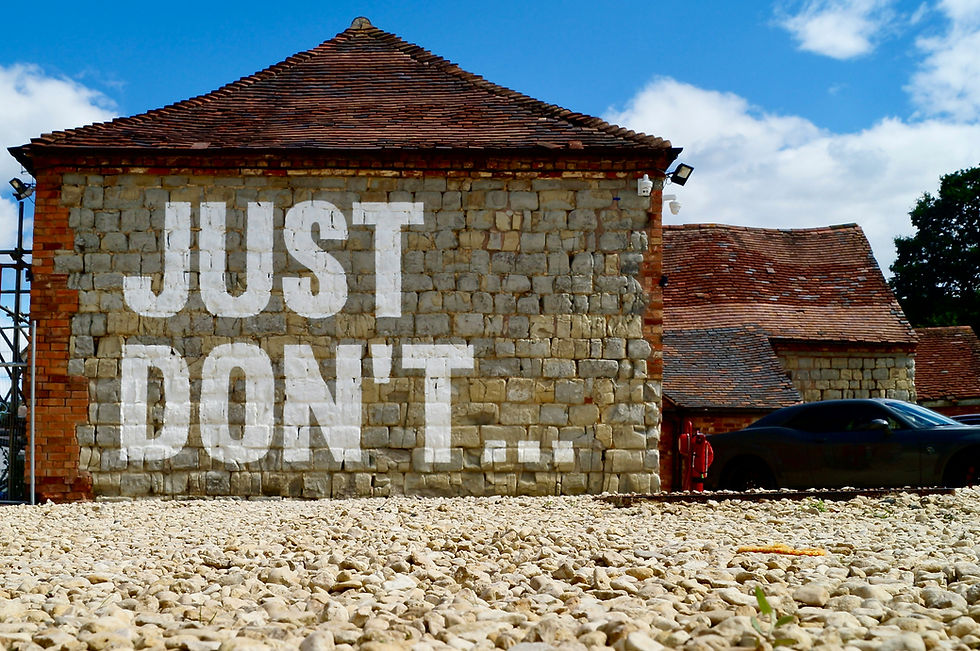White Jesus Matters.
- Jessica Kiragu
- Apr 19, 2024
- 3 min read

I’m standing in the church of my childhood, the night before my wedding.
My friend, a member of the wedding party here to help with last-minute details, stands nearby looking up. I follow her gaze, and realize that she's taking in the large mural at the front of the sanctuary. "That's the whitest white Jesus I've ever seen," she says to no one in particular.
This space feels both familiar and different. The sanctuary, with its maroon carpeting and matching pews, tall stained glass windows lining the side walls, and the mural of the “whitest white Jesus” and white angels at the front, remains the same. After years spent away, and new experiences in new places with new people, I've changed. Despite having seen this image countless times, it took my friend pointing out the blonde, pale-skinned Jesus for me to truly see it. Why hadn’t I noticed how very white this Jesus is before and what does it mean that I didn’t?
Growing up it seemed that being Christian, American, and normal was synonymous with being white. It was taken for granted among the white people and white community I knew. With these folks, I didn’t have to question who came to mind when we talked about Christians, Americans, or normal people.
In every depiction I remember, Jesus and God were white men, sometimes with blond hair and blue eyes. The vast majority of great Americans in my textbooks and classroom lessons were also white. The artists, authors, politicians, and leaders praised for their contributions to their fields and to our country, were mostly white.
When we did learn about people of color, it was in relation to specific race related causes and achievements. Rather than celebrating people of color for their unique qualities, innovation, or pure talent, we tied their accomplishments and bravery to efforts advancing racial equality. The experiences, skills, and knowledge of people of color were subnormal because they didn’t neatly fit with our white version of normal.
My intention isn’t to cast judgement. I’m simply acknowledging some of the facts about my experiences with race. Now looking back, it’s hard to ignore that people who looked like us were often cast as the heroes and saviors of the story. Maybe it was a way to see ourselves as heroes, or we were trying to make up for past failures or find redemption. Perhaps we overlooked different races because our daily lives didn't involve interaction with people from racial backgrounds different from our own. We were a group of white folks trying to make sense of our faith, our country, and our day-to-day lives together.
White Jesus matters because he presents a problematic paradox, much like the notions of being white as American and white as normal. This paradox, and its implications, deserves attention. In my predominantly white community, we worshipped a white Jesus and sang "red and yellow, black and white, we are precious in God's sight." We proclaimed that skin color didn't matter and that America is a melting pot. Yet, we struggled to envision American heroes and normal people as anything other than white, and we categorized the people God loves by skin color.
Honestly, it's not just that the people we admired and aspired to emulate were white — I needed them to be white. There was an inflexibility to my feelings about it that I found hard to shake off. Even now, traces linger because what I learned about whiteness is deeply etched. Digging into the meaning in my stories about race is challenging, but it also frees me to create new narratives and meaning.
Like other aspects of my childhood, there are certain things I've chosen to leave behind as an adult. Faith-based beliefs, narratives of patriotism, and what I once considered normal no longer hold me captive. Especially when they're riddled with unwelcome contradictions. Recognizing and excavating the beliefs, norms, and narratives that have shaped me up to this point allows me to construct new meaning and stories that more closely align with my experiences and my ever-evolving understanding of myself and the world.
I didn't come up with the idea of a white Jesus, or the notion that being American and normal is the same as being white. I grew up in a community of white people who lived out and reinforced these ideas. This story of whiteness being equated to Christianity, Americanness, and normality was consistently re-enacted and reiterated within my community. And just like I didn't dream it up on my own, I can't dismantle it alone.




Comments